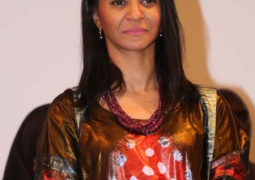
We
have suggested elsewhere that three of the major causes of public fighting in
our society are politics, ethnicity, and religion. Of these, religion is by far
the most contentious issue. This is because we do not only have fights between
religions, but also fights within religions. While we can certainly boast of many
Gambians who are totally tolerant of different religious faiths and
denominations, there are some of us who take it as a matter of life and death
to defend our religious convictions and decry those of other faiths we consider
ungodly. The rhetoric of religious acrimony is loaded with threats of hell and
prophesies of doom and damnation for people of other faiths. Yet, even less
than partisan politics and ethnic differences, religious differences should
never be a cause of fighting among believers in the two main monotheistic
faiths we have in The Gambia – Islam and Christianity. This is because unlike
politics and ethnicity, these religions actually define our humanity because
they are based on a doctrine of the unity of reality – the Unity of God – that
brooks no exclusion or marginalization.
All
monotheistic religions teach a doctrine of reality on one hand and a method of
unification with that reality on the other. But while these religions teach
different methods of unification (worship) with that reality, they all agree
that there is one single Creator of the universe, and that He constitutes the
Only Reality that exists. In other words, our religions hold that the world was
created by God and exists within the Presence of God, and therefore human beings
and everything else in the world are manifestations or aspects of the Divine
Presence. Hence the Jesuits could speak of “seeing God in everything”, which is
to say seeing the Essence of God in all His creation. In the words of the
Quran: “Wherever you turn, there is the Face of God.” Everything that exists,
one eminent scholar of religion writes, “is merely an articulation of the
Divine Breath—a spiritual expansion . .
. from the Hidden to the Manifest, from Essence to Form”. Our common humanity
is categorically defined by our existence within the Divine Presence. All
things and humans are manifestations of God’s Essence.
But
while all things and humans are manifestations of God’s Essence, only humans
are theomorphic, that is, “made in the image of God”. When God breathed of His
spirit into the first human He created, He breathed His spirit into the human
race as such because of our common ancestry in that first human. This reality
grants humans the only quality that separates us from other animals – possession
of an intellect derived from the Divine Intellect. It is our capacity for
intellection that places humans above all other creatures because only humans
possess the capacity to understand truth from falsehood and right from wrong,
and to practice virtues that are ultimately attributes of God such as mercy,
goodness, generosity, etc. It is in this sense that humans are said to be
representatives of God on earth – and this refers to all humans regardless of
our religious beliefs and affiliations, or our conditions and status in life.
In the final analysis, all our “outer differences veil an inner Substance that
is One”.
And
so unlike partisan politics and ethnicity under which we should never subsume
our humanity, our religions actually define us as human beings whose essence
derives from the Divine Essence and whose ultimate mission is to reunite with
(or return to) that Essence. Hence religious doctrine teaches us to “return to
God” or submit to God. The exhortation to return to God is not only an invitation
to worship God, but also a call for human beings to align themselves and their
actions as much as possible with their true nature, which is ultimately the
Nature of God. Believers in monotheistic religions are encouraged to return to
God by not only performing acts of worship but also by emulating as much as
possible in their words and actions the virtues of God.
In
other words, because God is Good, humans should be good; because God is Truth,
humans should be truthful; because God is Merciful, humans should be merciful;
because God is Compassionate and Kind, humans should be compassionate and kind;
because God is Just, humans should be just; and because God is Tolerant, humans
should be tolerant; and so on. Needless to say if we are all good, truthful,
merciful, kind, just, and tolerant in all our interactions with each other, we
will still have and argue over our religious differences, but we will not fight
over them.
The
teachings of our religions never to be cruel, deceitful, merciless, unkind, unjust,
intolerant, etc are not just lessons to be remembered, but lessons to be
constantly lived in our day to day interactions with other beings, especially
our fellow human beings. That is why religion is described as a way of life. If
recognize the Single Source of our being – God, and emulate the virtues of God,
we will not fight over our religious differences or treat each other as
anything less than essentially identical representations of the same Divine
Reality. As individual containers of the Divine Essence, humans are extensions
of each other and should therefore never wish hell or damnation for each other
in the name of religious or any other differences.
Read Other Articles In Article (Archive)

Fourth prosecution witness testifies in Foroyaa messenger’s trial
Jan 24, 2014, 9:28 AM
Black Acoustic rappers to release debut album
Dec 30, 2011, 2:44 PM


